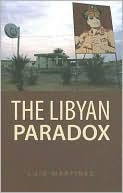Category Books
- Fiction Books & Literature
- Graphic Novels
- Horror
- Mystery & Crime
- Poetry
- Romance Books
- Science Fiction & Fantasy
- Thrillers
- Westerns
- Ages 0-2
- Ages 3-5
- Ages 6-8
- Ages 9-12
- Teens
- Children's Books
- African Americans
- Antiques & Collectibles
- Art, Architecture & Photography
- Bibles & Bible Studies
- Biography
- Business Books
- Christianity
- Computer Books & Technology Books
- Cookbooks, Food & Wine
- Crafts & Hobbies Books
- Education & Teaching
- Engineering
- Entertainment
- Foreign Languages
- Game Books
- Gay & Lesbian
- Health Books, Diet & Fitness Books
- History
- Home & Garden
- Humor Books
- Judaism & Judaica
- Law
- Medical Books
- New Age & Spirituality
- Nonfiction
- Parenting & Family
- Pets
- Philosophy
- Political Books & Current Events Books
- Psychology & Psychotherapy
- Reference
- Religion Books
- Science & Nature
- Self Improvement
- Sex & Relationships
- Social Sciences
- Sports & Adventure
- Study Guides & Test Prep
- Travel
- True Crime
- Weddings
- Women's Studies
The Libyan Paradox »

Authors: Luis Martinez, John King
ISBN-13: 9780231700214, ISBN-10: 0231700210
Format: Hardcover
Publisher: Columbia University Press
Date Published: December 2007
Edition: (Non-applicable)
Author Biography: Luis Martinez
Luis Martinez is a research fellow at the Center for International Studies and Research (CERI), Paris, and the author of The Algerian Civil War (Columbia).
Book Synopsis
The militant attitude of the United States after 9/11 and the invasion of Iraq in March 2003 inspired the leadership of Libya to change its confrontational attitude towards America and Europe. The regime abandoned its development of nuclear weapons and opened its economy to the West. Nevertheless, Muammar Gaddafi, the leader of the Libyan Revolution, has found ways to consolidate his hold on the country. In this controversial book, Luis Martinez suggests that the future of Libya now lies in becoming, paradoxically, what he terms an "authoritarian liberal state."
Table of Contents
Foreword Lisa Anderson vii
Map xiv
Introduction 1
From the business of revolution to a revolution in business 1
Libya: a model "conversion" of a rogue state? 4
The price of rehabilitation 8
The End of the Embargo 13
The Jamahiriya: the reckoning 14
"Halting the wheel that spins in a void" 19
The dissolution of the government and the establishment of the Sha'biyat 22
The social consequences of sanctions 24
From Arab unity to racial discrimination 25
Feelings of isolation and frustration 30
The economics of plunder 31
The "young revolutionaries" and the voyage to Malta: Rai music, sex, money and sport 35
The emergence of new economic resources 37
Conclusion 39
11 September 2001: The "Conversion" of a Regime 43
The impact of the ivasion of Iraq: fear of inclusion in the "axis of evil" 45
The effort to resume normal relations with the United States 48
The end of terrorist ambition 52
Joining the coalition in the "Global War on Terrorism" 56
The appearance of Islamist guerillas 60
The Libyan Islamic Fighting Group 61
The LIGFG's strategic deficit 68
The regime's response to armed revolt: repression, decentralisation and liberalisation 70
Conclusion 80
Gaddafi: His Power and Position 85
The bases of power 88
The maintenance of authority 91
Gaddafi's role: between the revolutionaries and the reformers 104
The United States of Africa 107
Libya and the Euro-Med partnership 111
Conclusion 113
Is the Jamahiriya Reformable? 117
Libya: a Metiterranean Eldorado? 119
Libyan blandishments 120
The curse of oil? 124
Necessary but impossible reforms 130
The foreign policy uses of oil income 133
The return of the American oil companies 134
EPSA IV 136
Strengthening relations with Europe 141
The economic costs of Libya's revolutionary policy 144
The end of the Algerian model of development 147
Conclusion 150
Conclusion: After Gaddafi? 153
Notes 159
Index 179
Subjects
 Politicos
Politicos  Middle East - Political Biography
Middle East - Political BiographyBiography
 All Biography
All Biography  Political Biography
Political BiographyHistory
 African History
African History  North African History
North African HistoryHistory
 Political History
Political History  Political Biography
Political BiographyHistory
 Political History
Political History  World Politics
World PoliticsNonfiction
 Social Sciences
Social Sciences  African Studies
African StudiesNonfiction
 All Nonfiction
All Nonfiction  African Studies
African StudiesPolitical Books & Current Events Books
 Political Biography
Political Biography  Middle East - Political Biography
Middle East - Political BiographyPolitical Books & Current Events Books
 World Politics
World Politics  African Politics & Government
African Politics & GovernmentPolitical Books & Current Events Books
 All Politics
All Politics  Political Biography
Political BiographyPolitical Books & Current Events Books
 All Politics
All Politics  World Politics
World PoliticsScience & Nature
 Social Sciences
Social Sciences  African Studies
African StudiesSocial Sciences
 African Studies
African Studies  North African History
North African HistoryNonfiction
 Biography
Biography  Politicos
PoliticosNonfiction
 Biography
Biography  All Biography
All BiographyNonfiction
 History
History  African History
African HistoryNonfiction
 History
History  Political History
Political HistoryNonfiction
 Politics & Current Affairs
Politics & Current Affairs  Political Biography
Political BiographyNonfiction
 Politics & Current Affairs
Politics & Current Affairs  World Politics
World PoliticsNonfiction
 Politics & Current Affairs
Politics & Current Affairs  All Politics
All Politics
